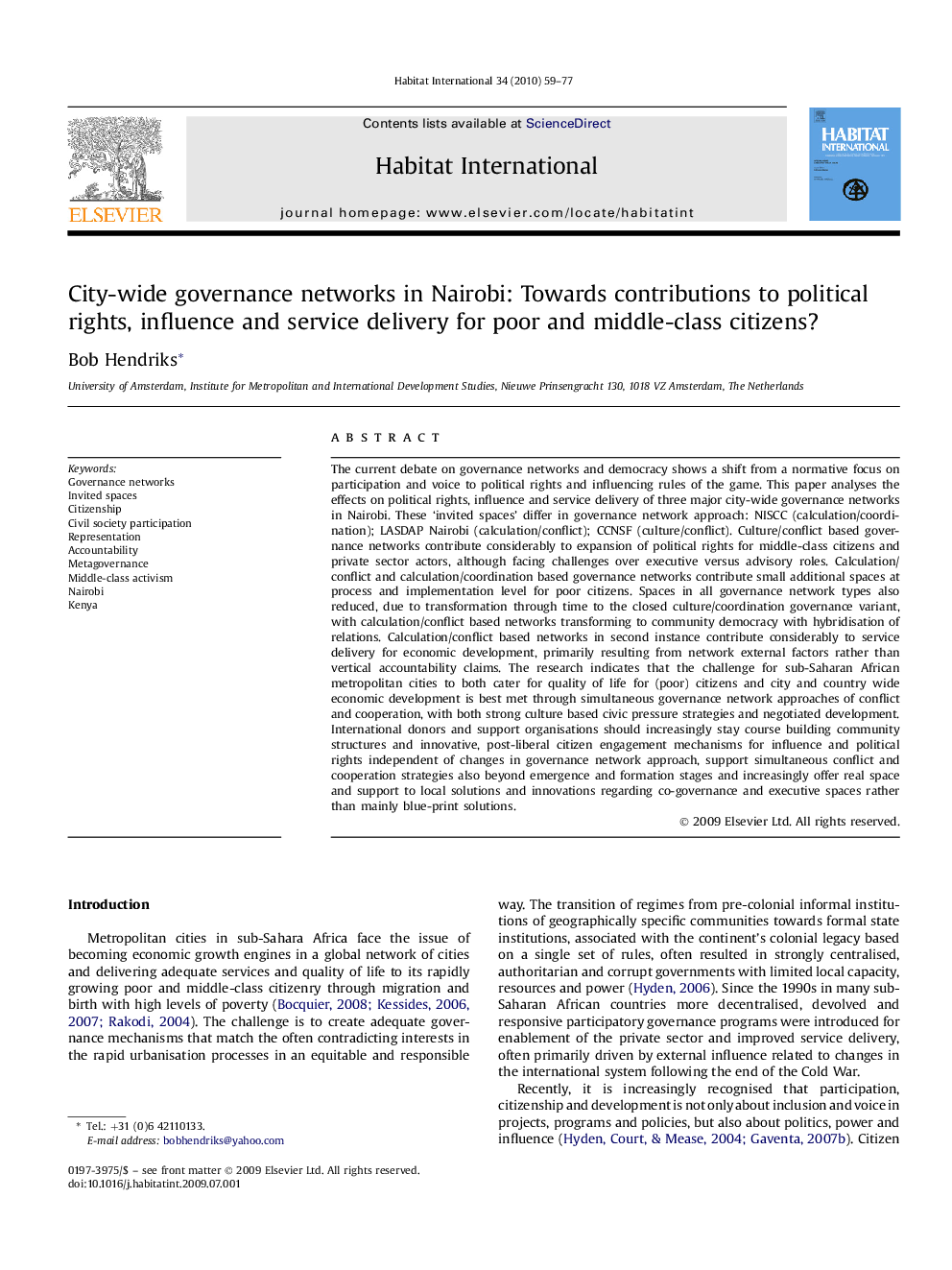| کد مقاله | کد نشریه | سال انتشار | مقاله انگلیسی | نسخه تمام متن |
|---|---|---|---|---|
| 1048333 | 945338 | 2010 | 19 صفحه PDF | دانلود رایگان |

The current debate on governance networks and democracy shows a shift from a normative focus on participation and voice to political rights and influencing rules of the game. This paper analyses the effects on political rights, influence and service delivery of three major city-wide governance networks in Nairobi. These ‘invited spaces’ differ in governance network approach: NISCC (calculation/coordination); LASDAP Nairobi (calculation/conflict); CCNSF (culture/conflict). Culture/conflict based governance networks contribute considerably to expansion of political rights for middle-class citizens and private sector actors, although facing challenges over executive versus advisory roles. Calculation/conflict and calculation/coordination based governance networks contribute small additional spaces at process and implementation level for poor citizens. Spaces in all governance network types also reduced, due to transformation through time to the closed culture/coordination governance variant, with calculation/conflict based networks transforming to community democracy with hybridisation of relations. Calculation/conflict based networks in second instance contribute considerably to service delivery for economic development, primarily resulting from network external factors rather than vertical accountability claims. The research indicates that the challenge for sub-Saharan African metropolitan cities to both cater for quality of life for (poor) citizens and city and country wide economic development is best met through simultaneous governance network approaches of conflict and cooperation, with both strong culture based civic pressure strategies and negotiated development. International donors and support organisations should increasingly stay course building community structures and innovative, post-liberal citizen engagement mechanisms for influence and political rights independent of changes in governance network approach, support simultaneous conflict and cooperation strategies also beyond emergence and formation stages and increasingly offer real space and support to local solutions and innovations regarding co-governance and executive spaces rather than mainly blue-print solutions.
Journal: Habitat International - Volume 34, Issue 1, January 2010, Pages 59–77